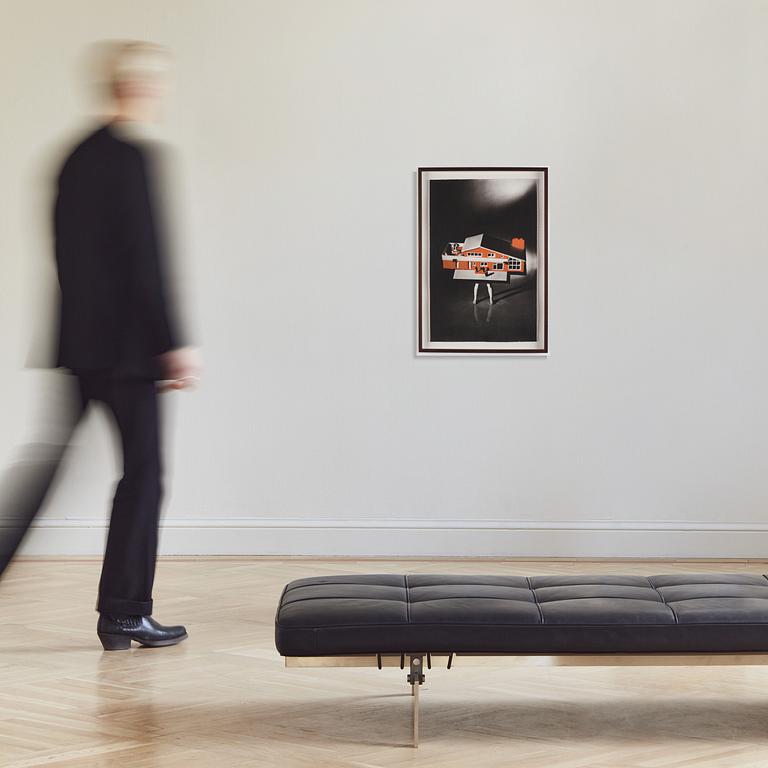Laurie Simmons
"Walking House", 1996.
Signed Laurie Simmons and numbered TP 3/10. Photogravure, image 72.5 x 42.5 cm. Including frame 82.5 x 57.5 cm.
Alkuperä - Provenienssi
Fred Dorfman Gallery, New York.
Liliana Tovar, Stockholm/New York.
Private Collection, Sweden.
Muut tiedot
Over the past 40 years, Laurie Simmons has delivered colorful images filled with humor, feminism and psychological subtexts. These have made her a leading figure in contemporary conceptual photography. Since the late 1970s, she has had numerous exhibitions in the US, Europe and Asia. Swedish audiences were able to see her work at the Gothenburg Museum of Art in 2012.
Simmons, who lives and works in New York, belongs to the generation of American artists who grew up with the consumer culture of the 1960s and 70s. Several of the artists who came to prominence during this period, such as Richard Prince and Cindy Sherman, came to work on issues of identity and social constructions, gender and the narrative functions of the image. Like Cindy Sherman, Simmons chose to work with staged photography and focused on the woman as an object. Where Sherman chose the self as her starting point, Simmons, inspired by her childhood home, has instead turned her attention to the dollhouse and its props.
From the dollhouse of her childhood, combined with the adult woman's memories and thoughts about the home and the gender roles of family life, Simmons has created a number of series with psychological and highly political themes. In her carefully constructed home environments, objects and figures sometimes assume absurd proportions. The plastic dolls and brightly colored miniature objects that Simmons uses create recognizable images that are given a slightly surreal touch by the slightly skewed perspective. Incidentally, dolls are a common thread in Simmons' work. In the early 1980s, for example, she had them pose in front of famous tourist destinations in 'Tourism', and later she combined the dolls' lower bodies with various everyday objects to create new surrealist figures. Although Simmons has worked primarily with female symbols, male ventriloquist's dummies have also been used to illustrate her view of the male fantasy world, and the symbol of freedom in American culture, the cowboy on horseback, is featured in the 1979 series 'Cowboys'. In recent years, Simmons has turned to working with a type of full-size Japanese doll that can be ordered and designed according to the needs and wishes of the buyer. She has also explored the ideals of beauty reflected in the appearance of dolls and used makeup to transfer that aesthetic to live models in the "How We See" series, 2015-2017.











































